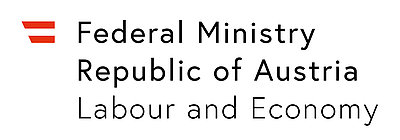
The FIW - Research Centre International Economics (https://www.fiw.ac.at/) is a cooperation between the Vienna University of Economics and Business (WU), the University Vienna, the Johannes Kepler University Linz, the University of Innsbruck, WIFO, wiiw and WSR. FIW is supported by the Austrian Federal Ministries of Education, Research and Science (BMBFW) and of Labour and Economy (BMAW).
FIW Newsletter
Stay informed and subscribe to the FIW-Newsletter.
FIW Working Papers
The purpose of the FIW Working Paper series is to circulate the results of ongoing research in international economics within the research community and thus to encourage discussion and stimulate critical comments within the field as well as to enhance networking and potential cooperation among researchers. Please take our Call for Papers into account if you want to submit your work.Call for Working Papers
Revisiting the Role of Inflation Environment in the Exchange Rate Pass-Through: A Panel Threshold Approach
FIW Working Paper N° 132
Nidhaleddine Ben Cheikh und Waël Louhichi - June 2014
Abstract: This paper sheds new light on the role of inflation regime in explaining the extent of exchange rate pass-through (ERPT) into import prices. In order to classify his sample of 24 developing countries by regimes of inflation, Barhoumi [(2006), “Differences in long run exchange rate pass-through into import prices in developing countries: An empirical investigation”, Economic Modeling, 23 (6), 926-951.] chose an arbitrary threshold of 10% to split sample between high and low inflation regimes. For more accuracy, our study proposes to use a panel threshold framework where a grid search is used to select the appropriate threshold value. In a larger panel-data set including 63 countries over the period 1992-2012, we find that there are two thresholds points that are well identified by the data, allowing us to split our sample into three inflation regimes. When estimating the ERPT for each group of countries, we point out a strong regime-dependence of pass-through to inflation environment, that is, the class of countries with higher inflation rates experiences the higher degree of ERPT.
Measuring the Impact of Exchange Rate Movements on Domestic Prices: A Cointegrated VAR Analysis
FIW Working Paper N° 131
Nidhaleddine Ben Cheikh and Waël Louhichi - March 2014
Abstract: This paper measures the pass-through of exchange rate changes into domestic inflation within a cointegrated VAR (CVAR) framework. This issue is of particular interest for the euro area (EA) as Member Sates cede their national currencies and no longer have options of using monetary policy to respond to local conditions. In fact, a common exchange rate shock, in the absence of a national monetary policy, may have differential impact on EA countries, leading notably to possible divergence in inflation levels. Using quarterly data for 12 EA covering 1980:1 to 2010:4, we report a large degree of heterogeneity in the rates of pass-through across our sample, especially, between "peripheral" and "core" EA economies. For instance, prices rise by 84% in Portugal following one percent depreciation of exchange rate, while for the German economy the extent of pass-through is not exceeding 0.20%. This outcome would have important implications for the general risk perceived by foreign firms and investors regarding the inflationary environment within each EA country.
Finance, Comparative Advantage, and Resource Allocation
FIW Working Paper N° 130
Melise Jaud, Madina Kukenova and Martin Strieborny - February 2014
Abstract: We show that exported products exit the US market sooner if they violate the Heckscher-Ohlin notion of comparative advantage. Crucially, this pattern is stronger when exporting country has a well-developed banking system, measured by a high ratio of bank credit over the GDP. Banks thus push firms away from exports that are facing an uphill battle on a competitive foreign market due to a suboptimal use of the domestic factor endowment. Our results imply a disciplining role for bank credit in terminating inefficient trade flows. This constitutes a new channel through which finance improves resource allocation in the real economy.

